The Miller's Tale
This is a website about the Canterbury Tales. Here you will find a summary and information about the The Miller's Tale
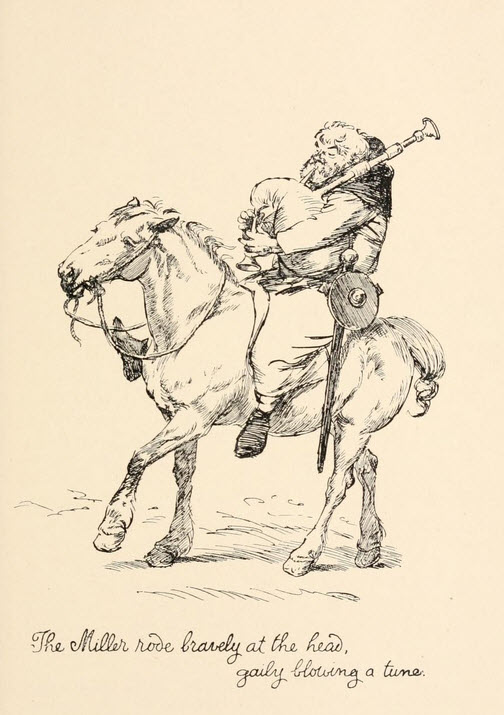
The Miller's Tale
The Miller's Tale is a humorous portrayal of a carpenter and his young wife. The Miller's Tale is second told after the Knight's Tale, but is told against the will of the host. The drunken Miller proclaims his tale to be as “noble” as the Knight's Tale. The host asks the Miller to let a person of better standing to tell their tale first. The Miller threatens to leave before the host acquiesces to the request. So begins the Miller's Tale. Before he begins, he proclaims that he is drunk and that any words he uses are not to be held against him.
Summary of the Miller's Tale
The Miller's Tale begins with a young student of astrology named Nicholas. Nicholas had found room and board with an old carpenter who was wealthy, but ignorant. The carpenter, named John, has a young wife of eighteen years, Alisoun, who he was quite possessive of. One day, while the carpenter is out, Nicholas flirts with Alisoun. Nicholas becomes overwhelmed and grabs Alisoun, who threatens to yell for help. Nichols beseeches forgiveness and over the course of conversation, Alisoun agrees to sleep with him when it is safe.
The Miller's Tale also illustrates that another young man, Absolon is enthralled with Alisoun. This vain soul serenades Alisoun every night and buys her expensive things. None of these tactics work because Alisoun has fallen in love with Nicholas. In the mean time, Nicholas has devised a means to outwit the carpenter. He has Alison tell John he has fallen ill. The servant reports the John that Nicholas has fallen ill and is immobile. The Miller's Tale shows John as thinking Nicholas' studies as worthless. Nevertheless, the carpenter feels sorry and checks on the student.
When John and Nicholas meet, Nicholas claims he has seen a vision of God. Nicholas has been told that the heavens will open up with rain twice that of the great flood of Moses. John is easily convinced that the end is nigh and sets about to help Nicholas. Nicholas convinces the carpenter to attach three tubs to the roof of the barn and spend the night in the tubs to be ready for the rain. As the three climb to the roof, he says that they must be silent and pray through the night to be spared. John goes to sleep and Alisoun and Nicholas quickly descend and spend the night together.
Absolon appears in the morning for a quick kiss. Alisoun proclaims her love for Nicholas, but Absolon will not hear it. She agrees for a quick kiss. As Absolon leans in she presents her rear end and lets the man kiss it. The two lover's collapse in a fit of laughter. Absolon, wanting revenge, goes to the blacksmith and grabs a red hot poker. When he returns, offering another kiss, Nicholas offers his behind to be kissed. Absolon brands the poor student who begins to scream for water.
The Miller's Tale ends with the carpenter releasing the tubs from the roof and falling and breaking his arm. The commotion draws several people from the town. The carpenter begins to babble Nicholas' tale of the end of times. Alisoun and Nicholas pretend ignorance and claim the carpenter has lost his mind. The Miller's Tale concludes with the village ending in an up roared laughter at the carpenter's expense.
Meaning and Interpretation of the Miller's Tale
The Miller's Tale in the Canterbury Tales shows a tension between the social classes. The host clearly has an outlined plan for the tales order. The monk is asked to tell the second Tale. This creates a vision of order based on social class. The Miller's Tale upsets this plan. Class is also drawn into the Miller's Tale being depicted as a rowdy character and the low social standing. The pronunciation of class is even seen in the description of the characters. The Miller's Tale uses details of a life on the farm to describe Alisoun, such as body being slender and delicate as a weasel.
The Miller's Tale is illustrated through stereotypes of his social status and profession. Before the tale begins, he apologizes and blames the ale he is drinking. The host also apologizes before the Miller's Tale and tells the other party member to blame the Miller. The Miller perverts several themes from the previous Knight's Tale. The Knight's Tale focuses on suffering being part of the divine will of the gods. The Miller's Tale also cautions against tampering into “God's pryvetee” or God's secrets. John scolds Nicholas several times about his studies into the secrets of the heavens.
The Knight's Tale indicates it is not man's place to know the gods will. The Miller's Tale takes this theme and perverts it further. The Miller indicates that it is not mans place to question his wife's fidelity. He also illustrates this through the Miller's Tale when John jealously controls his wife. This perversion is to show that attempting to know the will of God is akin to a husband trying to know his wife's private parts. These perversions in the Miller's Tale also go back to how rank and stereotypes are played through the tales.
The overall moral of the Miller's Tale is that the carpenter should not have married so young. The Miller believes that justice is served through Alisoun's infidelity. This is another perversion to an appropriate love story. Alisoun has revenge on her husband from his control and jealousy. The Miller attempts to align Nicholas as God, using biblical references and astronomy. The Miller's Tale also shows Absolon as the devil, using a red hot poker.
The Miller's Tale is meant to be comical in several ways. It is a perversion of the Knight's Tale in several instances. However, it also illustrates the differences in class and social standing not only on an education level but perspective as well. The Miller blames his worldly problems on the Ale and it is illustrated in the story as well. The Miller's Tale is a comedic love story that shows the differences of class and perspective from the higher ranks.
Canterbury Tale Summaries
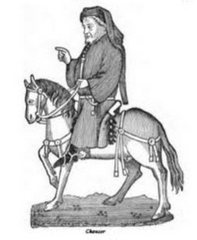
Geoffrey Chaucer
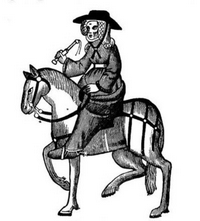
The Wife of Bath's Tale
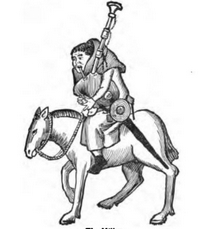
The Miller's Tale
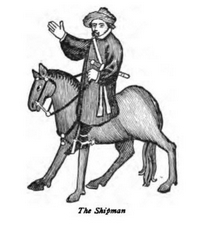
The Shipman's Tale
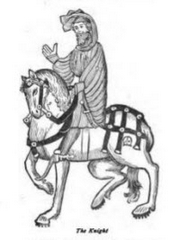
The Knight's Tale
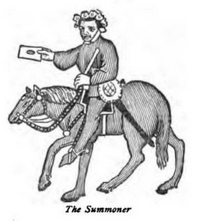
The Summoner's Tale
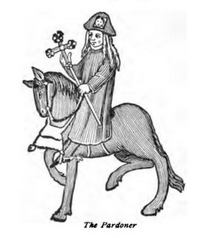
The Pardoner's Tale
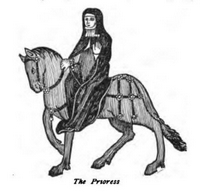
The Prioress's Tale
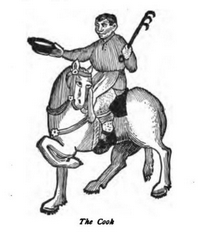
The Cook's Tale
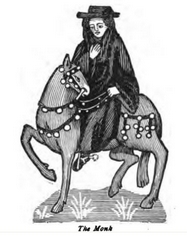
The Monk's Tale
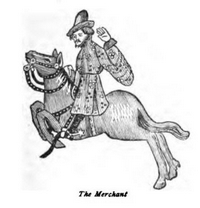
The Merchant's Tale
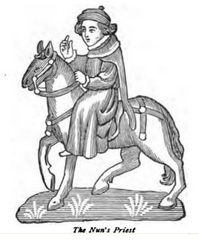
The Nun's Priest's Tale
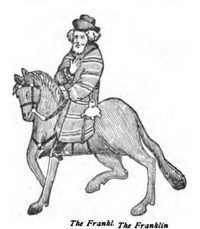
The Franklin's Tale
Main Page | Site Updates | Privacy Policy | Site Map | XML Map | RSS | Contact | About
Canterbury Tales
